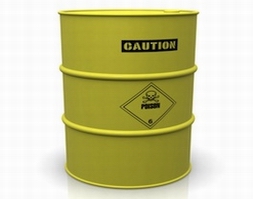The last meal of rice, beans and potato curry for 21 primary school children in India’s northeastern state of Bihar was likely contaminated with an insecticide, according to government officials trying to explain their deaths.
meal of rice, beans and potato curry for 21 primary school children in India’s northeastern state of Bihar was likely contaminated with an insecticide, according to government officials trying to explain their deaths.
In addition to the 21 children who died, another two dozen children were admitted to hospitals in the Patna area, where the provincial capital is located. P. K. Shahi, the government’s minister of human resource development, said in post mortem examinations, an organophosphate — a highly toxic chemical often used in insecticides and solvents – was found in the children’s bodies.
Bihar is one of India’s poorest and most remote provinces, sharing borders with both Bangladesh and Nepal. Suicides and poisonings by insecticides are common in the region. Dr. Shambhu Nath Singh, deputy superintendent for the government’s Bihar Saran District hospital, says the school lunch was either already contaminated or became contaminated during preparation.
About half of India’s children suffer from malnutrition.
India has a national school lunch program, serving free meals to 120 million children in its 73,000 schools. In Bihar alone, 20 million receive the free meals. The India Supreme Court ordered school lunches be provided in 2001, and the program has since grown into the world’s largest.
While popular with the children and credited with increasing school attendance, delivery of school lunches in India is complicated. Charities and non-government organizations along with local politicians are all involved, sometimes resulting in fraud and poor quality meals.
Provincial police are investigating the deaths and the school’s headmistress has gone into hiding, according to local news reports.
 meal of rice, beans and potato curry for 21 primary school children in India’s northeastern state of Bihar was likely contaminated with an insecticide, according to government officials trying to explain their deaths.
meal of rice, beans and potato curry for 21 primary school children in India’s northeastern state of Bihar was likely contaminated with an insecticide, according to government officials trying to explain their deaths.In addition to the 21 children who died, another two dozen children were admitted to hospitals in the Patna area, where the provincial capital is located. P. K. Shahi, the government’s minister of human resource development, said in post mortem examinations, an organophosphate — a highly toxic chemical often used in insecticides and solvents – was found in the children’s bodies.
Bihar is one of India’s poorest and most remote provinces, sharing borders with both Bangladesh and Nepal. Suicides and poisonings by insecticides are common in the region. Dr. Shambhu Nath Singh, deputy superintendent for the government’s Bihar Saran District hospital, says the school lunch was either already contaminated or became contaminated during preparation.
About half of India’s children suffer from malnutrition.
India has a national school lunch program, serving free meals to 120 million children in its 73,000 schools. In Bihar alone, 20 million receive the free meals. The India Supreme Court ordered school lunches be provided in 2001, and the program has since grown into the world’s largest.
While popular with the children and credited with increasing school attendance, delivery of school lunches in India is complicated. Charities and non-government organizations along with local politicians are all involved, sometimes resulting in fraud and poor quality meals.
Provincial police are investigating the deaths and the school’s headmistress has gone into hiding, according to local news reports.





